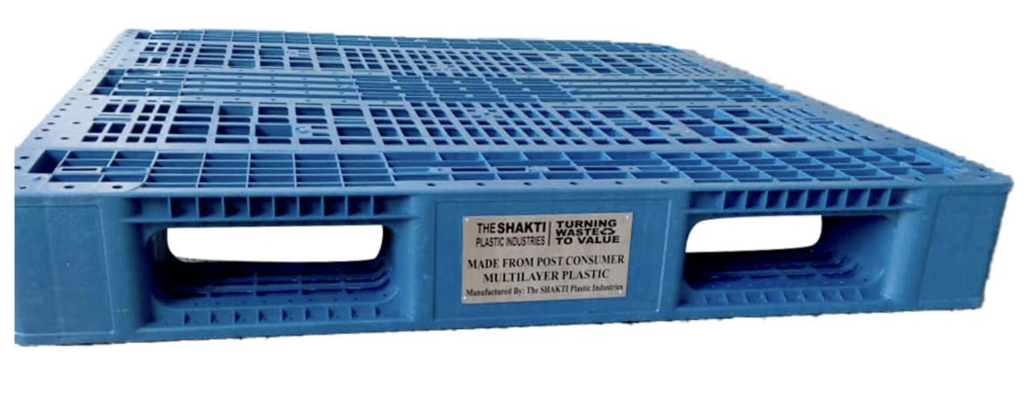
MLP, or Multi-Layered Plastic, is a type of plastic most commonly used for packaging of food items such as chips, biscuits, chocolates, and other snacks. Mostly, MLP packets have two sheets of plastic enclosing a layer of aluminum, but technically MLP can be any material that has at least one layer of plastic.
These multiple layers prevent food contamination and help with transport and storage. Hence, this is the best way in which packaged food can reach people, say, food majors. But waste collectors and rag pickers typically don’t collect this waste, as it is of extremely low value (INR 2-4/Kg compared to INR 25-30/Kg for PET, for example) and is therefore doomed to littering our streets, dumps, and sewage canals.
It is widely believed by the government, manufacturers, brands and consumers that a large amount of MLP and MLP waste being generated is “non-recyclable” due to its low value. Owing to this, MLP waste is either taken to cement kilns for co-processing or mixed with bitumen for road construction, or disposed of using Waste to Energy (WtE) technologies or through pyrolysis.
However, none of these methods are ideal or sustainable as they are either extremely polluting or cause economic loss of the material (that is, MLP).
It is untrue that MLP waste cannot be recycled. There is a fifth and ideal method – Waste to Granules (that is, recycling)

The Shakti Plastic Industries has invested in technology to recycle MLP and has the capacity to convert MLP waste into granules which are fit to be used for making a variety of products ranging from chairs, stools, benches, pallets, flower-pots to much more!
In terms of benefit to the manufacturer, producers, and end-consumers, recycled MLP pellets are far cheaper than those made from virgin plastic pellets apart from being sustainable, contributing to a circular economy, and ensuring that a large amount of untreated MLP plastic waste does not pollute our shared environment. In addition, it promotes job creation, upliftment of informal workers through the chain and supports formalization, organization, structuring, and growth for all the stakeholders in the recycling chain in India (waste workers and rag-pickers, aggregators, recyclers, PROs, etc).
A few challenges currently exist in the recycling of MLP waste. It is a highly power-intensive industry and the process involves huge amounts of water consumption and other requirements of an Effluents Treatments Plants (ETP) plant. Further:

- MLP Recycling plants require large infrastructures for processing and hence needs large amounts of investments
- Lack of availability of appropriate technology on a large scale
- Collection of MLP waste from areas of generation including rural and hard-to-reach areas poses a problem.
The Way Forward
In order to promote the recycling of MLP on a large scale, the industry needs the following:
- Enforce constrictive measures on new plastics production and to promote the use of recycled plastics
- Funding through local waste management fees through government initiatives
- Establish end-of-waste criteria for recycled plastic in order to set a high-quality standard and stabilize the market for secondary raw materials
- Investments in recycling collection schemes
- public-private partnerships need to be formed to mobilize the industry to make change
- changes in consumer behavior are also needed for plastics
- Manufacturers and producers must work with recyclers to maximize design efficiency potential.
- Co-operation along the value chain.
The author, Ms Ritika Gadoya, is the Sustainability Head & EPR Consultant for The Shakti Plastic Industries. For more information, please visit www.shaktiplasticinds.com
Picture Credits: The Shakti Plastics Industries



